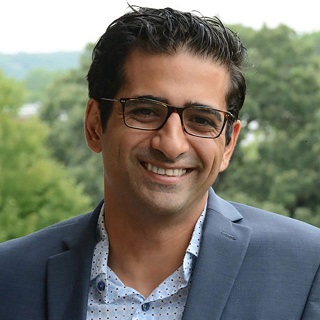IEEE Central Coast Event- - 17 February @ 6:30PM
Dr. Kerem Camsari Presents "Understanding Quantum Computing Through Negative Probabilities"
Greetings,
Dr. Kerem Camsari’s timely talk, Understanding Quantum Computing Through Negative Probabilities, is sure to answer a lot of our questions.
When you Register for the IEEE Event please include your email address so you can be contacted if you win the "Door Prize". Only those who actually attend the Zoom talk will be included. Please use the link below to log onto the Zoom Event between 6:15 and 6:30 PM on February 17th. Having trouble getting on? If you don’t have Zoom Client installed on your device download when you arrive at Zoom.
Best regards, Ruth Franklin IEEE Central Coast Chair
- Please Register for This Event Now.
- Use link to access Zoom on February 17 between 6:15PM for 6:30PM.
- FYI: Zoom Meeting ID: 970 8235 5848, Passcode: 735956
Date and Time
Location
Hosts
Registration
-
 Add Event to Calendar
Add Event to Calendar
Speakers
 Kerem Camsari of UCSB - ECE
Kerem Camsari of UCSB - ECE
Understanding Quantum Computing Through Negative Probabilities
Despite his tongue-in-cheek statement, "I think I can safely say that nobody understands quantum mechanics," Richard Feynman provided one of the clearest conceptual pictures of quantum behavior in terms of a path formulation of quantum mechanics. This talk will be about our perspective in understanding the quantum universe by starting from a probabilistic world. As Feynman observed some 40 years ago, the main difference between a probabilistic world and a quantum world can be traced to the idea that probabilities need to be generalized to involve negative (or even complex) values. We will show how this difference can be related to the recent groundbreaking demonstration of quantum advantage in engineered quantum computers. Finally, we will discuss some recent developments of probabilistic computers that can help accelerate the solution of computationally-hard problems.
Biography:
Kerem received his PhD in Electrical and Computer Engineering from Purdue University in 2015, where he continued on as a post-doctoral researcher between 2015 and 2020, before joining the department of Electrical and Computer Engineering in UC Santa Barbara in 2020.
His PhD work established a modular approach to connect a growing set of emerging materials and phenomena to circuits and systems, a framework that has also been adopted by others. In his postdoctoral work, he used this approach to establish the concept of p-bits and p-circuits as a bridge between classical and quantum circuits to design efficient, domain-specific hardware accelerators in the new, beyond-More era of electronics.
Kerem's work has been published in many refereed journals and conferences including Nature, Nature Electronics, Science Advances, Physical Review X. He has delivered more than a dozen invited talks in international conferences and workshops, including American Physical Society (APS) March Meeting in 2016, IEEE Device Research Conference (DRC) in 2017, Magnetism and Magnetic Materials (MMM) Conference in 2017, the IEEE International Electron Devices Meeting (IEDM) in 2019 and the International Conference on VLSI Design (VLSID) in 2020.
Kerem served on the technical program committee for Design, Automation and Test in Europe Conference (DATE) in 2020 and in 2021. He has also served on the technical program committee of the IEEE Conference on Rebooting Computing (ICRC) 2020.

